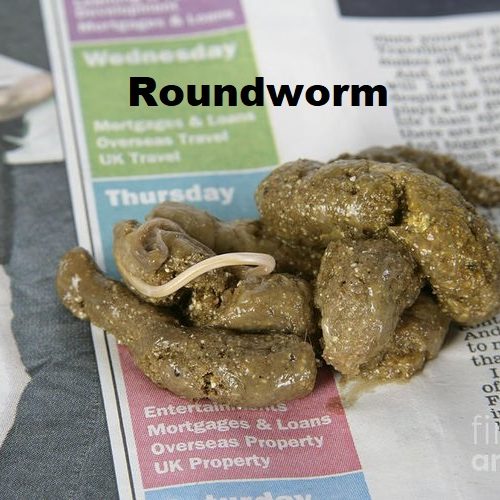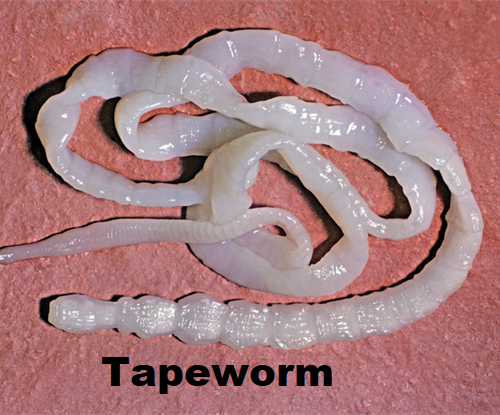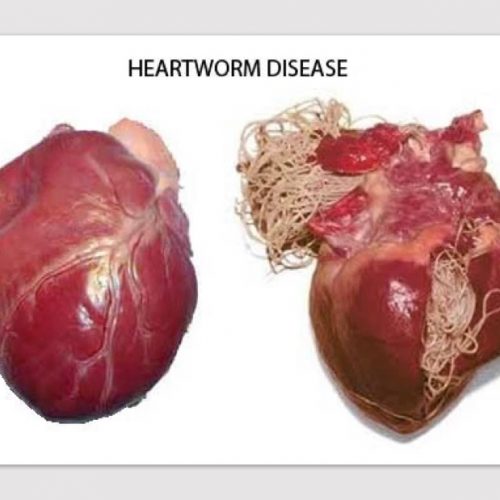From mange and fleas to roundworm and heartworm, there are dozens of parasites that your pet is at risk of acquiring. Most pet owners are aware that depending on the parasite, it can be a serious problem. In the Ottawa region, we have plenty of mosquitoes and ticks, making diseases like heartworm and lyme a danger to the dogs in our communities. Read below on some of the parasites we commonly find in and on our pets.
External Parasites
We can often visualize external parasites on our dogs if we look closely enough. However, parasites such as mites and even some flea infestations can be almost impossible to visualize. Diagnosis often requires skin testing and in some cases medication trials. There are also several options for treatment that will prevent infection of most parasites that are common in Ottawa.
Ticks – We primarily see the American Dog tick and Deer tick in Ottawa, especially in Dunrobin and Contance Bay. In addition, there is an emergence of new ticks in Ontario which have made their way to Ottawa including the Lone Star tick. The primary concern is not so much the actual tick bite, but instead the transmission of tick-borne bacteria – Lyme, Anaplasma, and Ehrlichia. Each bacteria behaves differently and signs that your pet is infected varies but pets can often present with fever, lethargy, inappetance, or lameness. Because infection is so common in our area, we screen pets annually with a blood test that determines exposure to those bacteria as well as heartworm. Treatment for tick-borne diseases is available and can work eliminate the pathogens from our pet, but prevention with anti-parasitics is more reliable and effective. If you are noticing ticks around your home and community, speak with our staff on starting prevention for your pet. If a tick has bitten your dog, the screening test will detect exposure to the pathogen 30 days after the initial bite.
Fleas – These parasites are dropped off by infected wildlife or pets in the community and can quickly become a problem. Flea bites can cause allergic reaction in our pets leading to intense itchiness. They can also be the intermediate host in tapeworm infections. Treating tick infestations is easily done with veterinary-approved medications, where often 2-3 oral or topical treatments for your pet can treat entire infestations.
Mites – There are many different types of mites that can infect our dogs. Ear mites, Sarcoptic mites (causing Scabies or “Mange”), Demodex mites and so on. Some of these infections cause extreme itchiness and secondary infections. In addition, some are transmissible to humans.
Intestinal Worms
There are several intestinal worms that we worry about infecting our pets – roundworms, hookworms, whipworms and tapeworms. These intestinal parasites can affect growth and development in our puppies, cause decreased health in adult dogs, and some can be a dangerous risk if passed on to humans (especially children). Most infections can be picked up through routine fecal analysis looking for worm eggs. Treatment of intestinal worms often involves multiple treatments of medication spaced several weeks apart in order to ensure all adult worms are removed from the intestines.
Roundworms – Infection occurs through ingestion of infective eggs from the environment – either from contaminated soil, from ingesting an infected rodent, or through the mother’s placenta and/or milk in newborn puppies. Once ingested, the larvae migrates throughout the dog’s intestines, liver and lungs (depending on species) before growing into an adult and laying eggs that pass in the dog’s feces. These worms can grow up to 7 inches in the intestines. This worm does pose a risk to humans! If a human ingests an infective egg, the larvae travel randomly throughout the body before dying, and in many cases, end up in the eye, causing blindness. Eggs are fairly hardy in the environment and can survive freezing temperatures. If you notice a large, slender worm in your dogs vomit or stool, chances are it is a roundworm.
Hookworms – Infective larvae found in the environment can infect its host in several ways – either directly by penetrating the animal’s skin, or by ingestion of an infected animal, insect, or contaminated soil. These worms can also be passed onto a newborn litter of puppies via an infected mother’s placenta and milk. The primary concern is their ability to suck blood from their host, which can cause anemia in severe infections, and risk of infecting humans.
Tapeworms – There are several types of tapeworms that can infect our pets. All tapeworms go through a cycle which includes an intermediate host (that is, tapeworm eggs are ingested by either a flea or mammal where the tapeworm develops further. Pets must then ingest the immature tapeworms from the intermediate host to finish the life cycle). Our primary experience with tapeworm is with cats that hunt. They will often harbour tapeworms and become easily reinfected once hunting resumes. Luckily, tapeworms are easily treated, but care must be taken to treat flea infestations and/or prevent scavenging of carrion to prevent re-infection from occurring. Tapeworms can also infect humans through the same mechanisms, but not directly from our pets.
Heartworm
Heartworm disease is caused by a worm that is transmitted by mosquitos that grow in the lungs and hearts of pets. This results in an inflammatory response or obstruction of blood flow and can lead to heart failure and death. Luckily we have a simple blood test that can detect heartworm disease before heart failure develops, leading to a better prognosis. And if a pet does contract heartworm disease, the treatment to get rid of the worms can be life-threatening in itself, and can be quite expensive. Therefore, we always aim to prevent it from occurring in the first place with monthly heartworm prevention during the Summer and Fall months. It is important to remember that heartworm lingers in the area mainly due to dogs and cats who are not on prevention, and in our wild animals such as foxes and coyotes.
Luckily prevention and treatment has never been simpler. From the hundreds of different anti-parasitic medications available, but we stock only a few that have been proven to be safe, effective, and have a wide spectrum of activity, often killing several types of parasites. Routine prevention with appropriate anti-parasitic medication is often appropriate for most animals. In the end, the level of risk in contracting parasites varies and we can help develop an individualized treatment plan for your pet.







